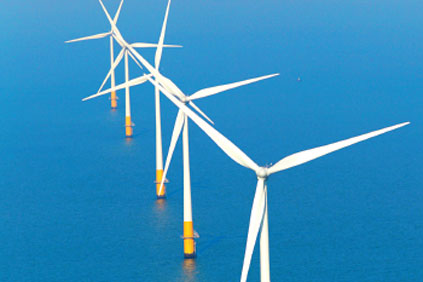The plans will allow generators to begin earning an income under the Renewables Obligation (RO) before construction of a project is fully completed.
Under current RO rules, renewable generators receive 20 years of support in the form of Renewables Obligation Certificates (ROCs) for each megawatt hour of output. But, the clock starts ticking as soon as the plant is registered with energy regulator Ofgem.
Offshore wind developers argue that due to long construction periods on large projects, they are unable to receive an early ROC income as soon as the first phases are completed or else they would have to forego the maximum level of support available for their total capacity.
If they choose to register the project as soon as the first turbines are commissioned and generating electricity, they will begin receiving an early cash flow, but later turbines will not enjoy their full 20 years of RO support.
On the other hand, deferring an income for several years until the project is complete can threaten its viability.
Unlike other technologies, this is a particular problem for offshore wind farms which tend to be bigger than onshore projects, and construction takes longer with access to the wind farm location limited by the weather and season.
The Department of Energy and Climate Change (DECC) is consulting on its proposal to apply the 20 years of support over five phases for each project, with offshore developers able register operational capacity once a year for up to five years.

.png)

.png)











